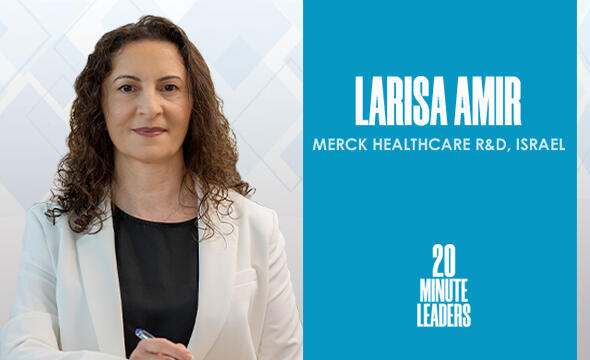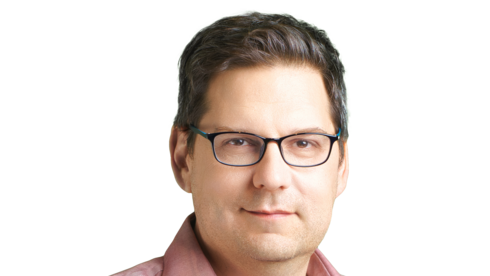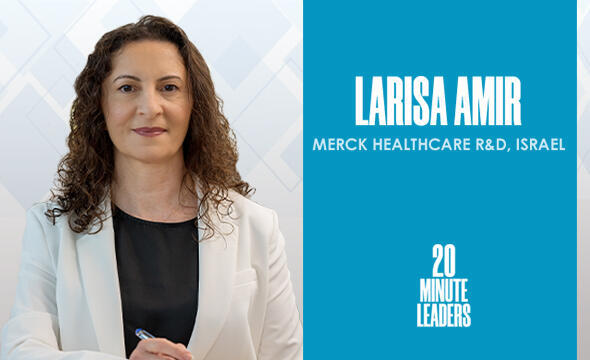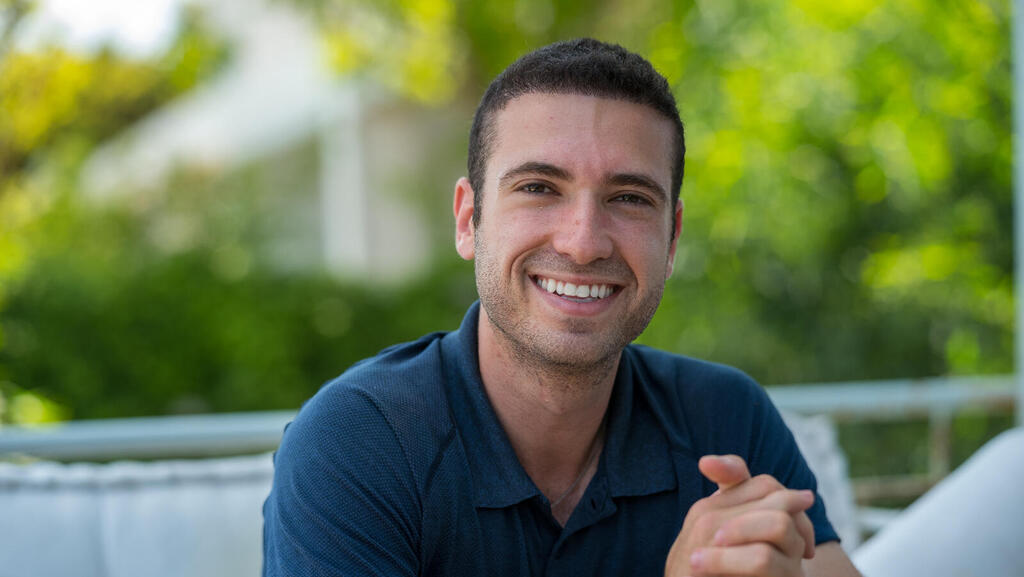
20-Minute Leaders
“Pharma companies need to capitalize on early-stage breakthrough innovation.”
Collaboration is key for pharmaceutical companies as they seek to make the drug development process more efficient and successful, says Larisa Amir, managing director of Merck’s R&D Center.
Collaboration is key for pharmaceutical companies as they seek to make the drug development process more efficient and successful, says Larisa Amir, managing director of Merck’s R&D Center. She shares that Merck is very open to collaborations with academia, entrepreneurs, clinics, and even competitors. While Amir explains that pharma companies have a more challenging path to market than tech companies, developing new medicines will be easier and more successful with breakthrough innovations from the tech space. Once those innovations are used, she says the next step is to show the regulators how well they work so it becomes easier to get approvals. Amir began her career as a lab scientist and has always been driven to take the next step and make a positive impact. She shares that she challenges herself but also those she works with to keep moving forward and improving patients’ lives.
Tell me about your own journey. Connect the dots of what brought you to the person you are today.
I started my professional career as a lab scientist at a young Israeli biotech company, which was a joint venture with the Weizmann Institute, with a clear vision to develop recombinant proteins for therapeutic use. At the time, this was a completely new domain in pharmaceutical development. Traditionally, drug development was of chemical molecule entities, not biological large molecules. It felt super pioneering. I actually learned what was required to develop, manufacture, and analyze a new molecule, and took it through the entire regulatory path, and eventually, registered it as a new medicine for patients. This drug became a blockbuster drug. Since then, I have had a very dynamic career. Joining a startup company in the field of glycobiology where we were pioneering with glycoanalysis using galectin on a chip.
Then later, I took a consultancy role supporting small emerging biotech companies in the field of regulatory and compliance and product registration. One of the companies actually reached the market and has a widely used hepatitis B vaccine. Now, I'm over a decade with Merck. I have done local, regional, and global positions, basically leading projects and teams of increasing scale and scope across borders and continents. My last role was a global product quality position leading a multinational group, which was responsible for the product quality of healthcare portfolio. During this period of time, Merck launched its last product, and my team heavily supported that launch, which is a cancer treatment for non-small cell lung cancer for patients with a specific genetic mutation. Six months ago, I'm back to Israel, becoming the managing director of the Healthcare Research Center.
Being a researcher, a lab scientist, an innovator in this field, let's dive into what that means to you. How does it align with your own set of values or characteristics?
Ever since I remember myself, I've always wanted to do something meaningful. But you might say, "Who doesn't?" I always wanted to make an impact and always had this starvation to do more and more. I always ask myself, "What's next?" This has been enabled, obviously, in this biotech world, which always has new things and there is purpose and there is an impact because we are touching human lives.
How do you decide what is the most relevant field for you right now to be dedicating your time, either as a lab scientist or even more so today as an R&D managing director?
As part of the global organization, basically, you follow the global strategy. You don't do what you want. We are a small site in Israel, part of the global R&D; we need to be globally integrated, not locally independent. We do bring a lot of ideas and innovation to the table, and this goes through the big company governance, and we choose. This whole needs to be within the strategy of Merck, which is immunology and oncology mainly. We are constantly looking at the Israeli biotech ecosystem, which is super vibrant and rich in ideas. We are super open for collaborating with the academic groups, with entrepreneurs, with clinical and research sites.
What is your vision for Merck in Israel? What is your vision for you as a managing director here at this R&D center?
The challenge ahead of us, and I think it's well-known, is that the biotech process aiming to reach the patient is very lengthy and it's a very costly process. It takes, on an average, 12 to 15 years and approximately 2.5 billion euros to bring a product to the patient. All pharma companies aspire to enable faster and precise development of innovative medicine, with less failure at the end of the road. All the pharma companies need to capitalize on early-stage breakthrough innovation and on disruptive technologies. Bringing computational and prediction tools, artificial intelligence tool, machine learning, robotics, 3D printing, organ on a chip, human tissue samples, and many, many more technologies to make this "translational process" from molecule discovery to human medicine more efficient, more precise, and more sustainable, maybe reducing use of animal for preclinical testing. All these efforts are already starting to be done.
This would be possible through collaboration with academic groups, with research centers, with the clinical centers, and hospitals, as well as with governmental programs, entrepreneurs with the state-of-the-art technologies, and with also competitive industries. In this field of AI, we are now collaborating with four different multinationals.
Early-stage breakthrough innovation: Unfold that term for me.
There is a lot that is going on with, for example, organ on a chip to replace animal use. All this 3D printing using basically live cells is a very early-stage. It's a breakthrough technology. It's not something which is obvious.
Is that common for every R&D group in the world to be looking at these not obvious things?
The Israeli ecosystem is of course supporting heavily in this external innovation for Merck. Obviously, there is a lot of innovation coming out from the US, from Europe. It all started 15 years ago when Merck established the R&D Center here, and I think that Merck is the only one that has an R&D center in Israel, and so this paid off. Merck has brought two blockbusters from the Israeli discovery.
As we are progressing technologically, are we also advancing conceptually in the ways that we are thinking through how to generate early-stage breakthroughs?
Technology has evolved so much, and you cannot keep the old fashioned way. The pharmaceutical industry is heavily regulated by FDA, EMEA. Advancement also should be with the regulatory path because we need to comply with what is required. You need to close this gap between the breakthrough innovation and convince the regulators that this is the right path. It's not easy. It's not the tech environment. It's much more traditional. It's much heavier. It takes longer because we are dealing with patient life.
Why do you do what you do?
Ever since I remember myself, I wanted to do something meaningful. Maybe it's related also to my background as a daughter of Russian immigrants who made Aliyah to Israel in the late '70s without knowing the language or the culture, struggling to stand on my own feet in a new country. I could not rely on my parents for help with school assignments or with questions about this new totally different culture, so basically I had to deal with everything by myself. I tried to excel. My ambition is to raise the bar and challenge myself, but also my surroundings. I always challenge my peers and colleagues. At Merck, I found this enabling environment that is aligned with my curiosity, my ambition, my passion to challenge barriers, and with this quest to bring impact and purpose. This is what drives me, basically.
Michael Matias, Forbes 30 Under 30, is a Venture Fellow at Innovation Endeavors as well as investment Venture Partner at Secret Chord and J-Ventures. He studies Artificial Intelligence and Human-Computer Interaction at Stanford University, and was an engineer at Hippo Insurance. Matias previously served as an officer in the 8200 unit. 20MinuteLeaders is a tech entrepreneurship interview series featuring one-on-one interviews with fascinating founders, innovators and thought leaders sharing their journeys and experiences.
Contributing editors: Michael Matias, Megan Ryan














